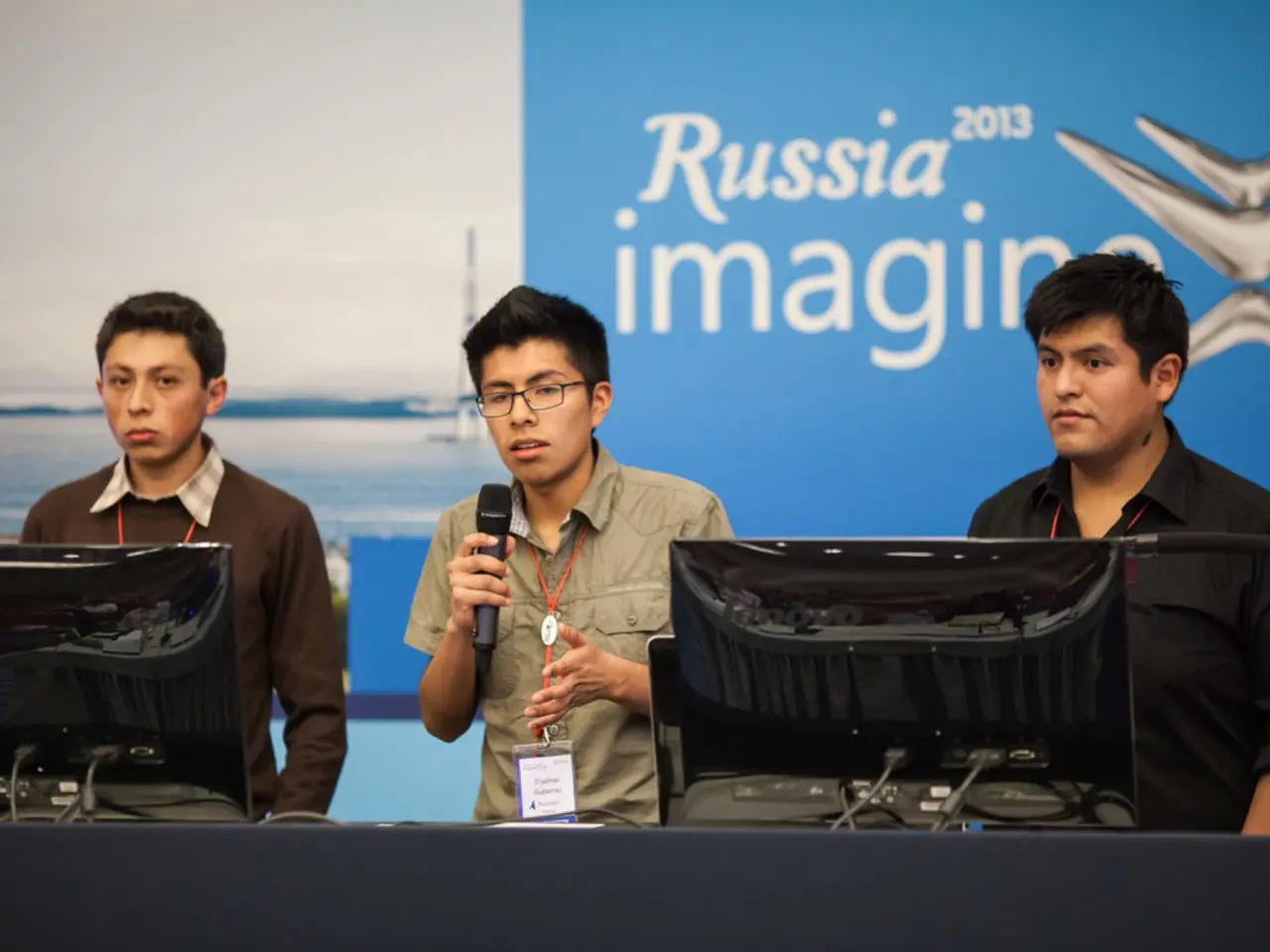Kazakhstan's administration intends to utilize a domestic messaging service.
Kazakhstan Enhances Cybersecurity and AI Protection with Presidential Directives
In a bid to secure communications and strengthen cybersecurity, President Kassym-Jomart Tokayev has outlined several key measures and strategies to protect personal data in artificial intelligence (AI) applications.
- Secure Communication Channels: The President has emphasized the importance of ensuring secure communication channels, particularly in government communications that involve personal data. To this end, he has tasked the government with transferring all such communications from foreign messaging apps to the domestically developed Aitu app. This move aims to keep sensitive data within Kazakhstan's jurisdiction and under its legal protection [3].
- Legal Framework Enhancements: The Kazakh Parliament is currently reviewing amendments to laws on personal data protection and informatization. The aim is to strengthen the legal framework and establish new security mechanisms, especially for state-owned informatization facilities. New administrative offenses related to misuse of electronic digital signatures have also been introduced to increase accountability [1].
- AI and Cybersecurity Integration: A digital headquarters has been established to facilitate AI integration in the economy, public administration, and healthcare. President Tokayev's instructions emphasize ensuring cybersecurity as a priority area within AI and digital transformation strategies [4].
- Public Awareness and Accountability: Kazakhstan reports an over 80% public awareness rate on cybersecurity issues. Citizens can check personal data exposure through government services like NomadGuard. Accountability frameworks are being emphasized, requiring all public institutions and organizations to implement cybersecurity measures effectively, fostering a culture of responsibility [1][4].
- Counter-Disinformation Measures: To protect informational integrity, Kazakhstan has established a Center for Countering Disinformation under the presidential administration. This centre aims to combat misinformation that could threaten national security and stability, complementing cybersecurity efforts in the AI domain [5].
The development of AI by President Tokayev is bringing fundamentally new threats and challenges. However, Kazakhstan is addressing these issues by pursuing a multi-faceted strategy that combines data sovereignty and secure digital infrastructure, enhanced legal frameworks, centralized coordination for AI and cybersecurity integration, and increased public engagement and accountability, while also tackling information security to safeguard personal data and support trustworthy AI applications [1][3][4][5].
Furthermore, a significant portion of business and official interactions, including the transfer of citizens' personal data, currently takes place through international messengers. The President has suggested that strengthening the use of the national messenger, Aitu, could improve national cybersecurity [3].
In a recent meeting, President Tokayev discussed the development of artificial intelligence. He noted the potential threats due to the development of artificial intelligence, such as the release of fake videos to manipulate public opinion and the creation of biometric copies of humans using neural networks [2]. He also highlighted the vulnerability of information systems and the potential threat to accessing personal data and bank accounts due to AI [2].
The government is also addressing the issue of more than 40 major data leaks that have occurred this year, with the largest incident happening in June [6]. The state is responsible for the overall level of digital security in the country [7].
[1] https://www.kazpravda.kz/ru/news/national/view/269386-tokeev-zayavil-o-nuzhde-v-kazakhstane-razrabotat-sistemy-obespecheniya-digitalnoy-bezopasnosti [2] https://www.kazpravda.kz/ru/news/national/view/269368-tokeev-zayavil-o-nuzhde-v-kazakhstane-razrabotat-sistemy-obespecheniya-digitalnoy-bezopasnosti [3] https://www.kazpravda.kz/ru/news/national/view/269386-tokeev-zayavil-o-nuzhde-v-kazakhstane-razrabotat-sistemy-obespecheniya-digitalnoy-bezopasnosti [4] https://www.kazpravda.kz/ru/news/national/view/269368-tokeev-zayavil-o-nuzhde-v-kazakhstane-razrabotat-sistemy-obespecheniya-digitalnoy-bezopasnosti [5] https://www.kazpravda.kz/ru/news/national/view/269368-tokeev-zayavil-o-nuzhde-v-kazakhstane-razrabotat-sistemy-obespecheniya-digitalnoy-bezopasnosti [6] https://www.kazpravda.kz/ru/news/national/view/269368-tokeev-zayavil-o-nuzhde-v-kazakhstane-razrabotat-sistemy-obespecheniya-digitalnoy-bezopasnosti [7] https://www.kazpravda.kz/ru/news/national/view/269368-tokeev-zayavil-o-nuzhde-v-kazakhstane-razrabotat-sistemy-obespecheniya-digitalnoy-bezopasnosti
- The integration of artificial intelligence (AI) and cybersecurity is being prioritized in Kazakhstan's digital transformation strategies, with emphasis on safeguarding AI-related projects from potential threats.
- By advocating for the use of the domestic messaging app, Aitu, instead of international messengers, the President aims to reinforce national cybersecurity and protect sensitive data under Kazakhstan's jurisdiction.




